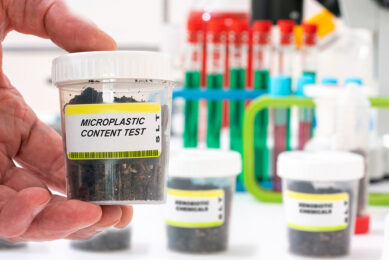Welsh cows eat garlic to cut global warming
Welsh farmers will be asked to try out garlic extract on their livestock to cut the amount of methane their burping releases into the atmosphere.
It comes after scientists found mixing some unusual foods into cattle and sheep feed could cut the stinky emissions from animals by 25%.
Farm animals currently produce 4% of the world’s total greenhouse gas emissions, and it’s thought the new diets could cut that to 3%.
The research by Aberystwyth, Bangor and Reading universities involved measuring the amount of methane burped out by farm animals in specially designed polytunnels.
The teams tried out different diets while measuring gas coming from the animals’ mouths into the air in the tunnels. They discovered the emissions could be reduced by a combination of different feedstuffs, special rations and additives.
Now it’s hoped trials being held at Bangor could persuade farmers to change the source of their animals’ diet.
Professor Jamie Newbold, of Aberystwyth, said the research looked “promising”. But he admitted there could be side effects as scientists still work out how much of an effect the garlic extract has on the actual taste of beef and milk.
He hopes the additives could also improve profits for farmers as it’s believed the new feeds could also improve beef production and boost milk yield.
Prof Newbold and his colleagues spent most of the summer on their research. They will now look into breeding new plants and feed with high sources of fat and sugar, as well as dietary additives such as garlic extract.
The scientists’ research attracted a £750,000 grant from the Department for Environment, Food and Rural Affairs. It helped the Aberystwyth and Bangor Universities’ Research and Enterprise Partnership to exceed its £11m target for generating research income.
Related articles:











